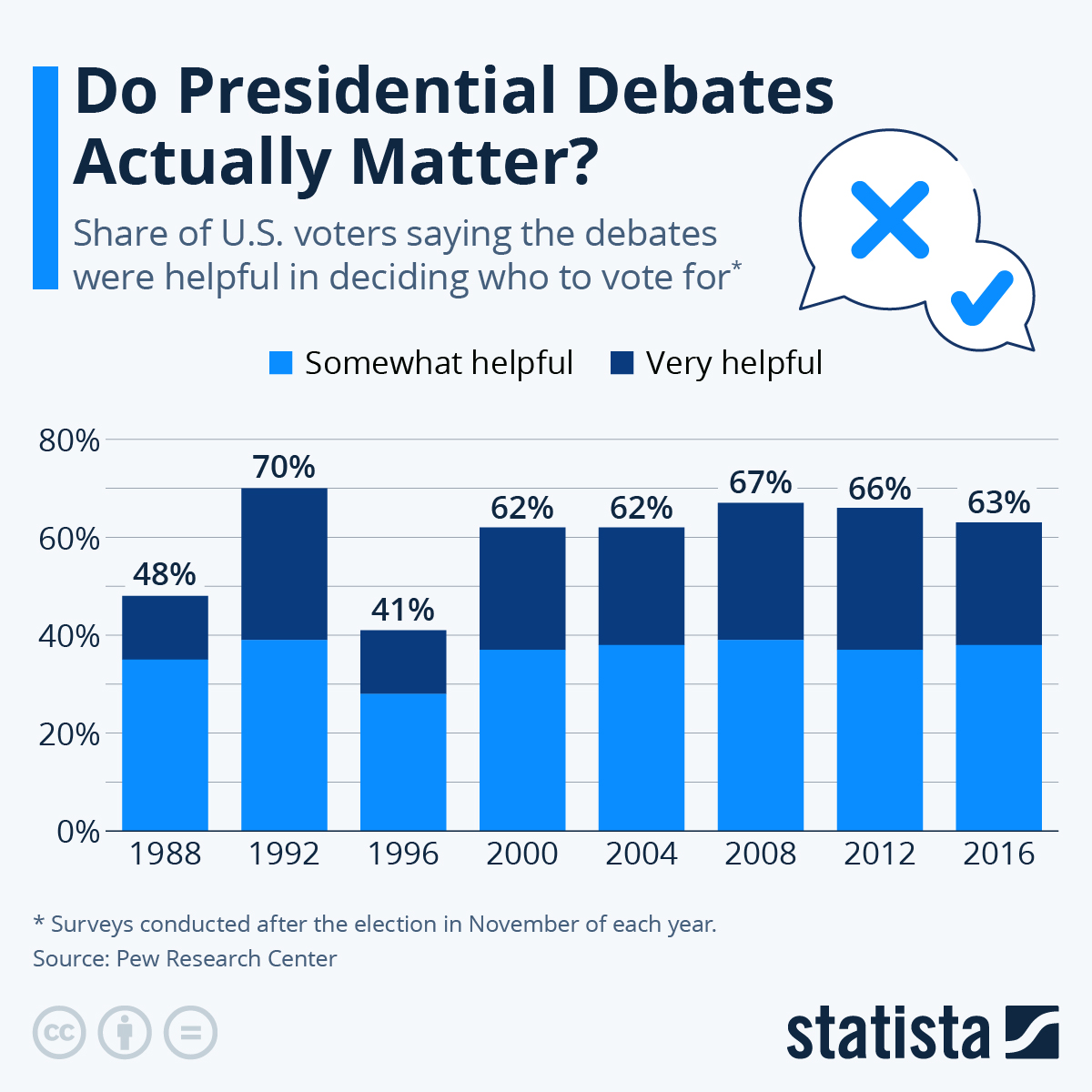
When Hillary Clinton and Donald Trump faced off in the 2016 presidential election, Clinton entered Election Day as the heavy favorite, ahead by a significant margin in almost all national polls.
Surveys also suggested that she had "won" all three presidential debates against her opponent, and yet, she ended up losing the election to Donald Trump.
Aside from the question of how valid pre-election polls are, Statista's Martin Armstrong notes that the surprising result also posed the question of whether or not televised presidential debates actually matter.
You will find more infographics at Statista
According to post-election polls conducted by Pew Research Center between 1988 and 2016, the majority of voters did in fact say that the debates helped them to some degree in deciding which candidate to vote for.
Notable exceptions to this are the Bush/Dukatis and Clinton/Dole/Perot election in 1988 and 1996, when 48 and 41 percent found the debates useful, respectively.
In 2016, 63 percent of voters said the debates were helpful in the decision making process, but, as in 2012, only 10 percent said that they actually made their decision during or directly after the debates.
When Hillary Clinton and Donald Trump faced off in the 2016 presidential election, Clinton entered Election Day as the heavy favorite, ahead by a significant margin in almost all national polls.
Surveys also suggested that she had “won” all three presidential debates against her opponent, and yet, she ended up losing the election to Donald Trump.
Aside from the question of how valid pre-election polls are, Statista’s Martin Armstrong notes that the surprising result also posed the question of whether or not televised presidential debates actually matter.
You will find more infographics at Statista
According to post-election polls conducted by Pew Research Center between 1988 and 2016, the majority of voters did in fact say that the debates helped them to some degree in deciding which candidate to vote for.
Notable exceptions to this are the Bush/Dukatis and Clinton/Dole/Perot election in 1988 and 1996, when 48 and 41 percent found the debates useful, respectively.
In 2016, 63 percent of voters said the debates were helpful in the decision making process, but, as in 2012, only 10 percent said that they actually made their decision during or directly after the debates.
Loading…






